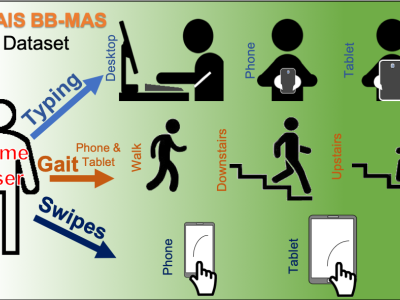Supplementary data for "Velocity Estimation of Robot Manipulators: An Experimental Comparison"

- Citation Author(s):
-
Stefan LiuAndrea GiustiMatthias Althoff
- Submitted by:
- Stefan Liu
- Last updated:
- DOI:
- 10.21227/tse3-h285
- Data Format:
 247 views
247 views
- Categories:
- Keywords:
Abstract
Accurate velocity information is often essential to the control of robot manipulators, especially for precise tracking of fast trajectories. However, joint velocities are rarely directly measured and instead estimated to save costs. While many approaches have been proposed for the velocity estimation of robot joints, no comprehensive experimental evaluation exists, making it difficult to choose the appropriate method. This paper compares multiple estimation methods running on a six degrees-of-freedom manipulator. We evaluate: 1) the estimation error using a high-accuracy ground-truth signal, 2) the closed- loop tracking error, 3) convergence behavior, 4) sensor fault tolerance, 5) implementation and tuning effort. To ensure a fair comparison, we optimally tune the estimators using a genetic algorithm. All estimation methods have a similar estimation error and similar closed-loop tracking performance, except for the nonlinear high-gain observer, which is not accurate enough. Sliding-mode observers can provide a precise velocity estimation despite sensor faults.
This dataset contains the implemented estimation methods, as well as the recorded data for the comparison.
Instructions:
Please read the README.md in each folder





